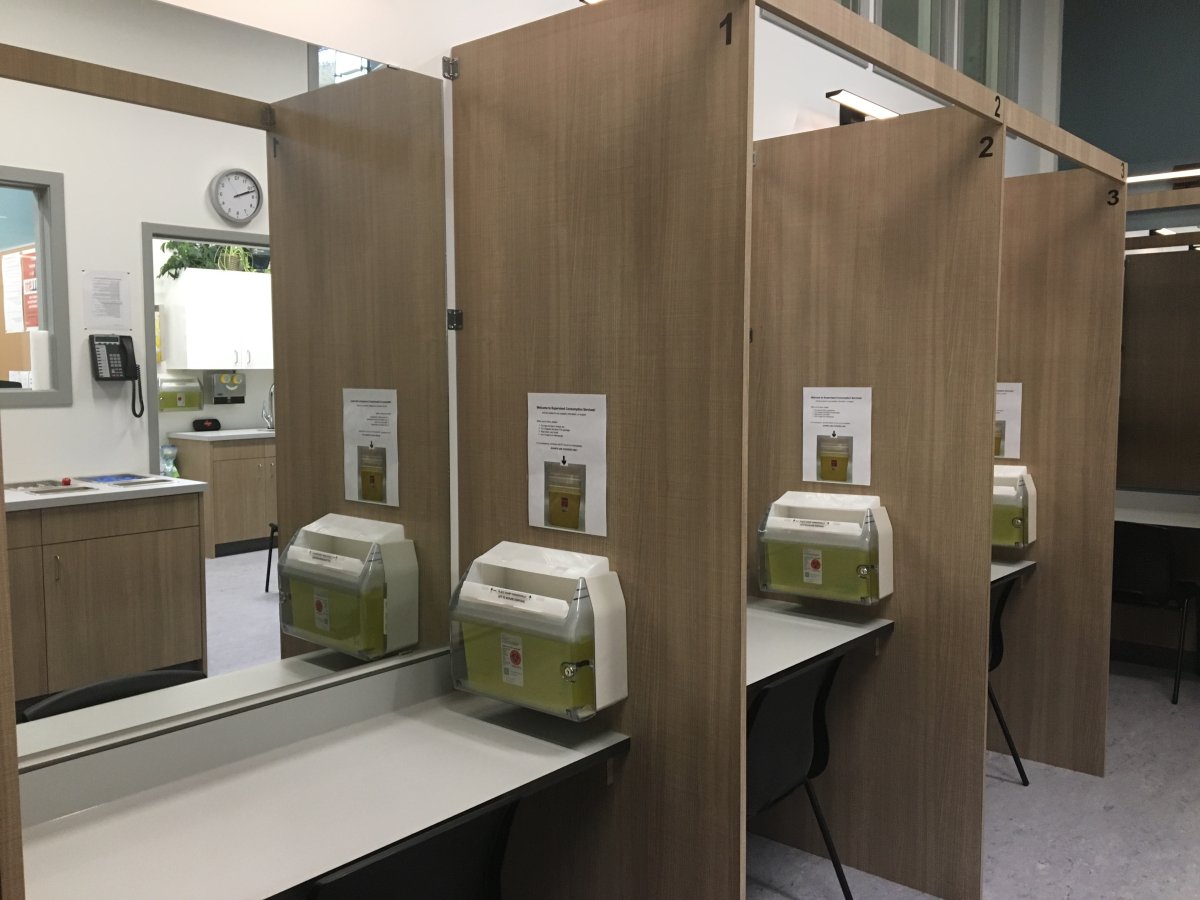A pilot program proposed by three Hamilton, Ont. non-profits to embed harm reduction staff and services into men’s shelters is on hold after councilors opted to defer the proposal on Monday.

City politicians voted to wait for further direction from public health after many wondered whether spending $600,000 from a soon-to-be no-more health services reserve was the best way forward.
Mission Services associate executive director Shawn MacKeigan, whose agency was one of the three proposing the pilot, said it appeared council’s debate Monday had “lots of perspectives in play,” particularly talk around overdose prevention.
He suggested solutions should also include “education and understanding” as well as innovative ideas like “sensor-equipped” facilities and not just focus on safe consumption sites.
“We sit at the city’s drug strategy roundtable, if anyone’s interested in reaching out to us or certainly coming to see what we do, we’d certainly put that on display,” MacKeigan offered councillors.
“Understanding what we do is important, recognizing that there are a number of different perspectives at play and there is not a one-size-fits-all solution.”
Hamilton’s director of housing explained before the vote that applications were sought to set up a supervised consumption space within the men’s shelter system amid recent high numbers of suspected drug-related deaths in men.
Michelle Baird said the proposal was generated after consultation with the only men’s shelter providers in Hamilton and their need for staffing to advance a harm reduction program that included safety planning, access to supplies and withdrawal management.
“I would say that the men’s system overall, and the shelter system more broadly, really is trying to put promising practices in place and understand the needs with respect to substance use,” Baird explained.
“Although substance use certainly isn’t encouraged in shelters, we have some great examples within the women’s system … where there are some innovative practices being put in place.”
Like MacKeigan, Good Shepherd Hamilton COO Katharine Kalinowski says she’s open to continuing a dialog with the city saying they’ve been “seeing benefits” in programs where harm reduction and addiction workers have been embedded on site.
She says Mary’s Place women’s shelter and Barrett Centre have been models for their organization through “improved outcomes” that were replicated after the proposed pilot.
“My participation in making that proposal was not a vote against safe consumption sites, but it was exploration of whether there was other responses that could mitigate very significant harm,” she said.
Medical officer of health Dr. Elizabeth Richardson said safe consumption sites in various forms have been a part of the city’s strategy in coping with the current crisis and have never come “off the table.”
She said “a particular challenge” within the men’s system led to discussions with the shelters and “what they think” how the city can move forward in a comprehensive way looking at different target populations and sites “able to do it.”
Despite supporting the proposal in principle, Ward 9 Coun. Brad Clark suggested falling back on consumption sites as a solution doesn’t get a handle on drug rehabilitation.
“I don’t know how we’re helping them get off of their addiction, and that continues to be my concern,” he said.
“We spend a great deal of time talking about harm reduction, but we’ve not been addressing that issue.”
Ward 13 Coun. Alex Wilson asked for more time saying he was struggling with what city bodies are suggesting is the “most efficient use of funds for right now” and whether the three providers have knowledge councillors don’t.
“Have we then cross-referenced their proposal with what we know is best in science (and) what is best at the times of development of these proposals,” he said.
The deferral vote now sends staff back to collaborators with the city’s drug strategy (HDS) to determine a program that can be expedited in just three months to tackle overdoses.
That follow-up is expected to return to councillors in early April.
Kalinowski says the delay is not surprising and hopes for a “robust holistic response” soon amid a crisis that’s seen close to 160 deaths across the city each of the last two years.
“I think safe consumption sites are one element that is very important, but I think there are other interventions, supports and approaches that can also help,” she said.




Comments